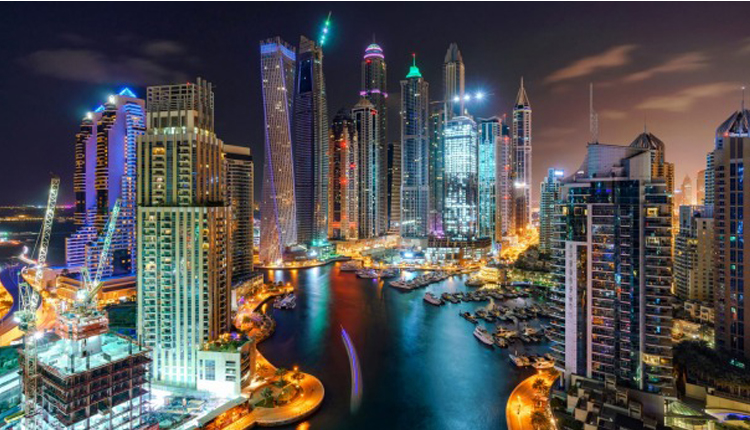The UAE’s new freehold law coupled with the introduction of a 10-year residency visa are expected to strengthen many areas of the economy, particularly the real estate sector, said global real estate firm Chestertons in a new report.
Slow economic conditions have resulted in short term price and rental declines in the capital’s residential real estate market, added Chestertons’ latest Observer: Abu Dhabi Market Report Q2 2019.
Short term, price and rental costs have experienced downward corrections across the board, a continuation of the trend experienced in Q1 with average sales prices for apartments and villas declining 5 per cent and 3 per cent respectively in Q2. In the rental market, average rental rates were down 6 per cent for apartments and 3 per cent for villas.
Nick Witty, managing director, Chestertons Mena, said: “Downward price corrections in this quarter are expected to continue throughout the rest of this year as over 11,000 units are scheduled to be delivered, which is creating a highly competitive market in favour of both tenants and home-buyers, to the detriment of property prices and rents.
“There is, however, reason to be optimistic. The recently announced freehold law is expected to generate a marked improvement in the capital’s real estate sector, the UAE ministry has also recently cut work permit fees by between 50 per cent and 94 per cent, while the 10-year residency visa should enable people to put down roots in the country and encourage them to invest in property for the long term.”
In the sales market, the trend in Abu Dhabi in the first half of the year has seen a shift towards affordability and competitive pricing. This was reflected in the apartment sector by an 8 per cent Q-on-Q price decrease in Saadiyat Island, denoting the largest decrease in all communities, with apartments now available for Dh1,400 ($381) per sq ft.
This was followed closely by Al Raha Beach and Al Ghadeer, which both saw negative adjustments of 6 per cent Q-on-Q to Dh1,300 per sq ft and Dh750 per sq ft respectively. Al Reef was the most resilient, witnessing a 1 per cent decline to 814 per sq ft in Q2.
The villa sales market witnessed further declines in Q2, with Al Raha Beach and Al Ghadeer experiencing price corrections of 5 per cent to Dh1,160 per sq ft and Dh700 per sq ft respectively. Al Reef witnessed a further 3 per cent drop in Q2 with average sales prices now Dh628 per sq ft, a result of all communities becoming more in line with market affordability and demand. Khalifa City was the only villa location to maintain the same price as Q1, at Dh872 per sq ft.
“In the short term we expect prices to drop further, however, with the introduction of new laws, it is likely expatriates will have the confidence to stay in the market for a longer period of time.
Flexible payment plans have also become the norm while developers appear to be at the early stages of implementing co-working and co-living concepts into developments, a trend that has been successfully implemented in Dubai and many other countries around the world. These will all provide some much-needed stability to the real estate market in the capital,” added Witty.
Rental rates in Q2 continued to be hampered by new supply entering the market, reduced demand, ongoing redundancies – potentially a further 2,000 redundancies as part of the ADCB merger, and companies providing lower rental allowances. As a result, apartment rental rates were down on average by 6 per cent and villas by 3 per cent.
The greatest rental declines for apartments were in Al Muroor which has now seen a 16 per cent decline since the turn of the year to Dh65,000 per annum for a typical two-bedroom apartment, and Mohammed Bin Zayed City where rates fell 10 per cent Q-on-Q to Dh50,000 for the same size accommodation.
The Corniche Road and Al Reem Island also witnessed declines; however, these were more subdued at 5 per cent, with a three-bedroom apartment renting for Dh155,000 and Dh130,000 per annum respectively.
Average apartment rates in Al Reef, fell by just 2 per cent with a typical two-bedroom apartment available for Dh71,000, making it the most resilient apartment location.
Underscoring the demand trend for more affordable rental options in the villa market, Al Reem Island four and five-bedroom villas recorded the biggest rental decline Q-on-Q of 8 per cent and 7 per cent respectively. A five-bedroom is now available for Dh275,000 per annum.
Al Raha Gardens saw a 5 per cent average drop with a four-bedroom now available for Dh165,000, while Al Khalidya and Al Reef were the most resilient with a nominal 1 percent decline to Dh179,000 and Dh132,000 per annum respectively for a four-bedroom apartment.
Source: Trade Arabia


